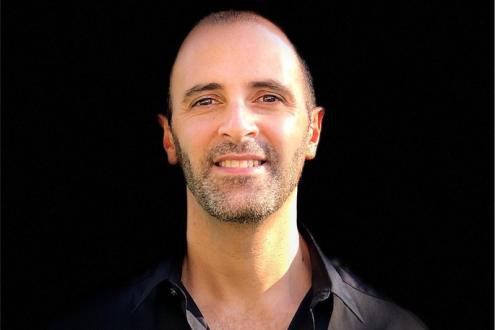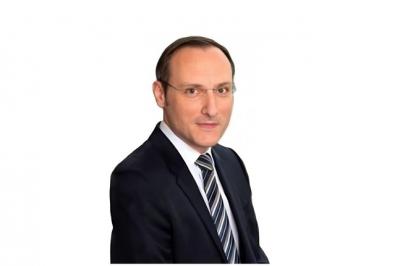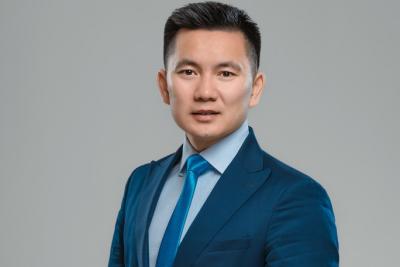Edward Soffer on Why Interactive Brokers is an ESG ‘Believer’ and how they are Spreading the Word

Edward Soffer of Interactive Brokers
Mar 9, 2022
Interactive Brokers has a lot to shout about. Not only is the firm making great strides forward with its digital execution platform and its custody offering, but it is forging an increasingly prominent position in the expanding universe of ESG. Its state-of-the-art electronic trading platform is ideally suited to the challenges facing the wealth management community in Asia, especially single-family offices, independent asset managers, and some of the smaller regional and boutique international private banks. Many institutional investors as well as retail buyers are migrating to the platform, which its leaders market not only as offering easy access to a world of products, but also provides seamless execution, analytics and reporting, as well as highly cost-effective custody. And a core driver of global growth for the platform relates to key investment themes and that, of course, includes ESG-driven investing, which is on the up and up in the US and Europe. The firm also has its eyes on the ESG revolution just gaining some traction these days in Asia, where growth is accelerating, albeit from a far lower base, and perhaps even somewhat amongst a somewhat more sceptical base. We ‘met’ with Edward Soffer, the New York-based ESG Manager for Interactive Brokers, to learn what ESG means to the firm and its clients, why it is now a core element within its DNA, and what they are doing to help drive ESG adoption in Asia.
Interactive Brokers Group Inc, which trades as ‘IBKR’ on Nasdaq, is one of the world’s most established electronic trading brokerage platforms, providing electronic trading services and custody for securities, commodities and foreign exchange around the clock in over 135 markets, 33 countries and 23 currencies.. The company’s clientele includes individual investors, hedge funds, proprietary traders, financial advisors, and introducing brokers.
From little to very large
The platform covers the entire array of customers from the retail buyer to large and often innovative institutions. Their larger clients, including those from the wealth management community, tend to be the more sophisticated traders who understand the nuances on payments for order flow, smart routing, best execution and the joys of no hidden fees. The platform offers a front-to-back service providing straight-through-processing from execution to clearing, including portfolio analysis for advisors, amongst other very valuable features and solutions.
In Asia, the company has tended historically to be seen as more of a retail-focused brokerage but increasingly in recent years, the firm’s client base has also expanded to the larger, sometimes largest, institutions and everyone in between those heavyweights and the typical retail buyer.
Asia and the wealth community
And the firm has been concentrating considerable energy on building its clientele in the wealth management sector in Asia, with a growing array of single-family offices, MFOs, IAMs and IFAs signing on, all drawn by the combination of compelling costs and efficiency and a broad array of easy solutions that the firm offers.
Edward Soffer is the New York-based IBKR ESG Manager, a role he took on just before the pandemic hit in December 2019. His mission is to work with Will Peterffy, IBKR’s ESG Director, to help establish the firm’s ESG Group, including implementation of comprehensive ESG strategy through the design of what he says are award-winning sustainable trading products and firm-wide initiatives.
Driving the ESG express
He is directing the creation of firm-wide social and environmental programmes and policies in connection with the firm's sustainable initiatives. He coordinates the direct ESG reporting, disclosure and external engagement, including liaising with the ESG rating agencies, and with Peterffy and colleagues they are driving the strategic direction of the platform’s ESG offerings, which naturally includes monetising this effort through smart marketing and cross-selling initiatives.
Edward tells us how they have developed a number of tools and dashboards within the company so far. “My mission is essentially to boost the understanding and participation amongst our internal stakeholders and external stakeholders, as well as communicating with key parties such as the ratings firms, and talking to clients and investors,” Edward reports. “It is a global role, so the effort certainly reaches deep into the APAC region, where ESG adoption is nascent but growing well.”
Into the ESG-centric future
He does not mince words when he says ESG investing is “the future of investing” and that it appeals especially to the Millennials who are taking control or making more of the world’s wealth.
“We have no doubt that as the millennials control more wealth, they are increasingly following their strong inclination to follow ESG principles in their lives and their investments.” And of course, beyond them the GenZ is waiting in the wings, equally and possibly even more focused on the environment, social matters and governance in all its guises.
Edward explains that IBKR also cares deeply about this and has made significant progress internally and externally since they ratcheted up the effort just over two years ago.
Ticking the boxes
He cites the improvements in diversity, for example on the governance side hiring their first Asian female director back in April of 2020. He refers to the creation of an ESG board committee, including both senior level executives and other staff from the firm; they meet monthly for a brainstorming and strategy session. And he points to the appointment of Will Peterffy, who he reports to as the main board director in charge of ESG.
Taking each of the E, S and G categories one by one, he explains, for example, that on the environmental side, IBKR is in the process of measuring and tracking its global carbon footprint. “This is an important part of our journey in sustainability,” he reports.
First, they analyse the footprint and then they will offset that footprint. At the same time, each of the offices and regions is making its own in sustainability initiatives, which might include energy reduction, adopting renewable energy, or enhanced recycling and waste management efforts. “This is a real global effort and it is not a one-off initiative; it will be continuous, we will be dedicated,” he adds.
And on the social side, the story is also one of increasing diversity at the firm, improving the composition within each of the offices to make sure that there is a greater range of people represented. “In the US here, we are hiring more minorities and more females,” he explains. “We are reaching out to specific colleges and universities, and we are boosting the regulatory and content of our public communication on these matters.”
They are also engaging in sustainability reports and thought leadership, including potential partnerships with well-reputed external organisations, including entities within the United Nations, all of which will help IBKR define, articulate and then advance on this journey.
Taking ESG to heart
Edward says this is a positive move driven by what he considers to be genuine good intent, but also concedes that these days there may be increasing penalties for companies that do not track these trends, especially those trading in the publicly traded markets.
“You can see around the world, for example Europe, which is actually more advanced in this field, that a number of jurisdictions are developing consistent taxonomies and also requiring certain entities like mutual fund companies and others to start disclosing sustainability practices and investment guidelines,” he observes. “That will likely extend into the US, with regulatory entities already looking into this. All in all, this is an unstoppable force, and one we very much embrace and believe in as well.”
The ESG snowball gathers momentum
And as all this happens, a growing swell of major investors will eschew the naysayers and detractors and embrace the stocks and other securities of those companies that visibly and comprehensively enhance their ESG alignments.
“You can see this everywhere you look,” he says. “Take Nasdaq, which has institutionalised new diversity guidance for boards of listed companies. It is happening, the wave is building. And we are definitely on board.”
Edward turns to the different ways in which IBKR can engage its clients and help them with their ESG journeys. He explains they already have a number of tools in place and more in the pipeline. He explains that even before they began this phase of the journey, they already had ESG ratings from Refinitiv available on the platform, offering scores for each of the publicly listed and ESG rated companies. “These ratings are also sub-divided into the E, S and G elements on our site, making it a very valuable resource,” he says.
ESG slicing and dicing
And since the major ESG push has taken place, they have evolved things to another level with, for example, the Impact Dashboard, which like the Refinitiv ratings is accessible on the Client Portal, Trader Workstation and IBKR Mobile platforms. “All access is customised, allowing clients to tailor their selections based on their priorities and preferences,” he explains. “The list of investible securities that emerges for the clients is therefore more individualised, through which they can express their ESG inclinations.” More recently, Interactive Brokers launched the IMPACT App which is geared towards the new generation of socially conscious investors. IMPACT takes the Impact Dashboard to the next level which was also designed for those who may just be starting their trading and sustainable investing journey.
13 is a good number
He reports there are 13 different values allocated to the E, S and G buckets, which were created by IBKR, but inspired by the United Nations Sustainable Development Goals, and also by the non-profit Sustainability Accounting Standards Board (SASB). Amongst these categories are, for example, clean air, pure water, LGBTQ inclusion, racial equality, and so forth. “The clients select which elements are of most importance to them, and the first filter emerges,” Edward explains. “Moreover, we provide off-the-shelf portfolios for U.S. clients for each of those 13 values.”
The second filter centres on exclusions, with 10 categories listed, from animal testing to greenhouse emissions, amongst others. “After the two filters cut in, investors then have a selection of ESG-acceptable stocks or securities,” he reports.
Does your portfolio pass ESG muster?
The entire portfolio will then be given a letter grade, and it will quantify how closely aligned a portfolio is with an investor’s values, with ‘A’ meaning an investors is bang on target. Secondly, clients will see flags for any investments that their prescribed filters indicate they want to avoid, showing which of the 10 exclusion categories are being transgressed.
“Additionally,” he reports, “the proprietary ‘Impact Dashboard and IMPACT app’ tools give every security what we call an impact effect, to indicate to the clients how much it's contributing to their overall alignment or misalignment.”
Giving back to the community
He adds that there are several features in the IMPACT App that set it apart from competitors’ offerings, including a charitable feature that for the time being is available only in the US. “It allows users to give back to their communities,” he explains. “Not only can they align and adjust investments, but they can also choose to give to charities under a feature we call ‘GIVE’. A comprehensive directory of non-profits is available in the App to US clients. Based on their ESG objectives, we provide clients with a personalised list of charities. Clients can then easily donate right from the app on their tablet or smartphones.”
And he says that the moves that IBKR has made in the ESG space add up to a market leading offering and culture.
“We are leading the way, for sure,” he states. “The design and functionalities of the Impact Dashboard and the IMPACT app are very unique. In our view, the products or tools available in the market are mainly based around ESG scores, but this is a generation beyond, as it is a personalised and customised journey the clients can embark upon. It’s unique, and it says a lot about our genuine commitment to these initiatives.”
Key Priorities
Edward reports that amongst key priorities is a mission to imagine ways in which people can measure their own carbon footprint. “How can the individual investor change, improve, adapt and also contribute by offsetting their own emissions?” he ponders. “We are deliberating and will find an answer. And then we are looking at ways for those keenly focused on ESG to connect with each other via the IMPACT app in what is tantamount to an ESG community. We are not there yet, but we are looking at these and other extensions, and we are optimistic we will layer on some really interesting and valuable capabilities.”
He also offers his perspectives on regulation, remarking that this continues to be a challenge for the overall ESG movement, something that everyone struggles with. “Can we become standardised and unified, and if so, how?” is the key issue. There are many benchmarks and frameworks out there, and yes, they are striving to consistency, but we are far from it yet.”
He had mentioned SASB, and points to others such as the Task Force on Climate-Related Financial Disclosures (TFCD) aiming to develop guidelines for voluntary climate financial information. And the Global Reporting Initiative, or GRI, as well as ISSB, the International Sustainability Standards Board.
“What I can say is that at those framework levels, there are many changes taking place to standardise information, and we are watching carefully, especially with the SASB as developing a potential standard for the way to report globally to our investors,” he comments. “Realistically, however, it is still relatively early in this game for companies around the globe to report on a sustainable basis, but financial services companies such as Interactive Brokers and other large institutions are leading the way to some extent. We all want standardisation, even the regulators, but we are clearly not there yet.”
Knowledge and engagement
He draws the conversation towards a close by remarking that while Millennials are controlling more of the world’s wealth and there is growing evidence of their increasing ESG focus, this does not mean that older investors are disinterred, in fact far from it. “Anyone can care, anyone can participate,” he says. “I am older than the Millennial generation, but I care deeply about sustainability, and about the values expressed in ESG. Ultimately this is a collective effort, and the logic is incredibly sound.”
His final observation is that with information and education comes understanding, appreciation and greater engagement. “The more one engages, I have found the more people want to know more. A negative is the lack of consistency in standards and that there is no uniform taxonomy, but that will come, these are actually early days when you think of where we have come from and how quickly we have already got to where we are today.”

ESG Manager at Interactive Brokers

More from Edward Soffer, Interactive Brokers
Latest Articles






